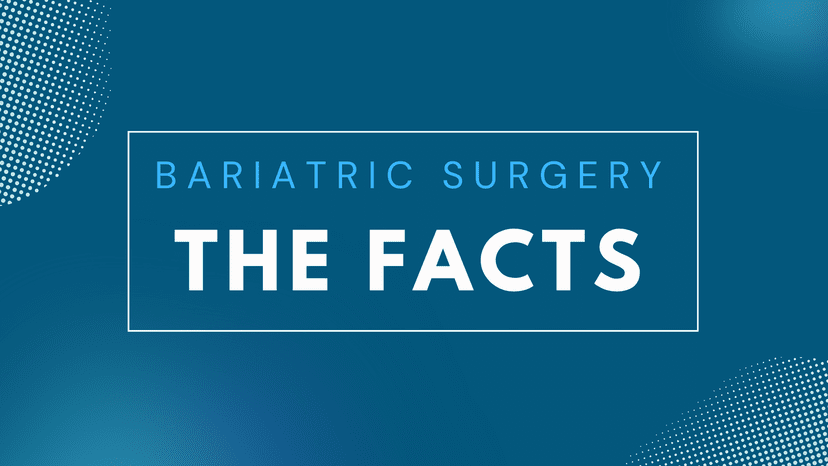How long do you need to keep watching what you eat after weight loss surgery?

The Immediate Post-Operative Period
Post weight loss surgery, your eating patterns undergo a significant transformation. In the weeks and months following the procedure, your body needs to adapt to the significant changes it has undergone. Carefully following the designated dietary guidelines your healthcare provider lays out for you is crucial in guaranteeing a timely and efficient recovery.
By breaking down your recovery timeline into dietary phases, systematically reintroducing different food types back into your meals, you ensure your operation achieves its maximum potential.
Understanding the Post-Surgery Dietary Phases
The post-surgery dietary plan typically consists of several distinct phases, each with their specific nutritional guidelines and timeframes.
Initially, your diet after surgery will consist entirely of clear liquids. This initial phase usually lasts for a few days and involves intake of low-sugar and non-carbonated beverages which includes water, clear broths, and decaffeinated tea or coffee.
Following this brief period of clear liquids, your body will be ready to advance to full liquids. This phase usually lasts for about 1-2 weeks, during which time your dietary options expand to include smoothies, protein shakes, and soups.
Lastly, after successfully completing the liquid phases, you will finally begin to reintroduce soft then solid foods back into your diet. This stage will span over several weeks or months, involving a progressive transition and increase in food textures.
Importance of Following Early Dietary Restrictions
Ensuring adherence to these dietary restrictions is of immense importance. Not only does this promote healing and recovery, it also allows your body to adapt to its new state post-surgery.
Since a weight loss surgery, like a gastric bypass or a sleeve gastrectomy, significantly reduces the size of your stomach, adapting to smaller portion sizes is a critical aspect of recovery. Learning early on to eat small, balanced meals will be beneficial in maintaining the long-term effects of surgery.
Remember, rashly resuming your regular eating habits could risk not only your recovery but also the effectiveness of your surgery. Straying too soon into denser foods could also lead to digestive issues like nausea, vomiting, and even stretching of the stomach.
Navigating the Transition to Solid Foods
As you begin to navigate the transition towards solid foods, closely monitor your body's responses. Introduce new foods slowly and in small quantities. This approach will allow you to gauge your body's tolerance for different food types and textures.
Remember: patience is key during this phase. It may take a while for your body to adjust to this new style of eating. Eating slowly, chewing food thoroughly, and keeping hydrated in between meals are fundamental practices that will help navigate this phase.
In conclusion, understanding the phased dietary approach post weight loss surgery and adhering to it strictly is crucial for managing your recovery and transitioning successfully into a healthier lifestyle. Remember, weight loss surgery is a powerful tool for weight management, but maintaining its benefits in the long run relies fundamentally on adopting new, healthier dietary habits.
Long-Term Dietary Management
In the journey of weight loss, especially after weight loss surgery, the roles of long-term dietary management and maintaining consistent lifestyle changes are often imposing yet indispensable. It is about fashioning a roadmap to guide your eating habits, embarking on a mission towards sustained wellbeing, and surely, it does not end right after the surgery.
Creating a Sustainable, Healthy Eating Plan
Creating a healthy eating plan is not a one-size-fits-all process, rather, it involves understanding your body's specific nutritional needs in the post-surgery context and tailoring a diet that caters to provide those nutrients. Moreover, a healthy eating plan ceases to be healthy if it's not sustainable - it has to be a diet that you can adhere to for life.
A balanced diet is key here, that includes foods from all nutrient groups - proteins, carbs, and fats. But, what it excludes is equally important – processed foods, high-sugar drinks,
foods riddled with unhealthy fats. Include diverse kinds of foods in your meals, alternate between lean proteins, whole grains, vegetables, and probiotic-rich foods for your gut health.
The Role of Portion Control in Long-Term Success
Success, in the long-term weight management scenario, significantly hinges on the golden principle of portion control. Recent studies suggest that our perception of portion sizes has dramatically inflated over the years, leading us to overconsume. Adjusting your meals to appropriate portion sizes helps you control total calorie intake without falling into the cycle of restrictive dieting or malnutrition.
Embrace the practice of mindful eating – paying attention to your body's hunger and satiety cues, taking time to eat, appreciating the food. Mindful eating could also help you understand when to stop eating, preventing the risk of overeating.
Foods to Limit or Avoid Post-Surgery
In the longevity of your weight loss and health, few foods may need to be kept at bay. Especially following weight loss surgery, it's essential to limit or avoid specific foods that can cause discomfort or contribute to weight regain.
Those typically include fatty and fried foods, sugary drinks, and high-fiber foods. The reason being, these foods can not only overload your calorie intake but also induce nausea, vomiting, or other gastric discomforts post-surgery. High-sugar or high-fat foods can potentially trigger "Dumping Syndrome"-, an unpleasant reaction that can cause diarrhea, nausea, and palpitation.
On this lifelong journey of weight management post-surgery, remember, consistency is the cornerstone. Small, incremental changes in dietary habits can lead to sizable health benefits. Hang in there, stay consistent in your efforts, and take one day at a time.
The Lifelong Commitment to Nutritional Health
Embarking on the journey of weight loss surgery doesn't end once the procedure is done. Instead, it marks the beginning of a lifelong commitment to maintaining your nutritional health.
The notion of lifelong nutritional monitoring is not something to be taken lightly. It's a necessity, not an option you can forego. Adapting to a new dietary regime post-surgery is pivotal, not just for weight management, but also for avoiding nutritional deficiencies and maintaining overall health.
Consistent adherence to prescribed dietary needs would determine the longevity of the benefits acquired from the surgical procedure. Thus, it's not hyperbolic to deem your post-surgery diet as a second lease on health and wellness, provided it is managed effectively.
Monitoring and Adjusting Your Diet with Time
Post-surgery transformation doesn't stop at the physical alterations brought by the weight loss procedure. It extends to the adoption of a new dietary protocol that needs consistent evaluating and tweaking as time passes, and your body adjusts to its new state.
It's essential to understand that your nutritional needs would evolve over time. The diet plan that worked for you in the immediate aftermath of your surgery may need modifications down the line.
Monitoring is the cornerstone of this adjustment process. Regular tracking and assessment of your diet would help identify deficiencies, excesses, and tolerances, thereby enabling necessary modifications. This monitoring isn't guesswork but relies on evidence-based techniques that consider several factors, including:
- Changes in the body's nutritional requirements due to weight loss
- Alterations in your ability to digest and absorb certain types of food
- Your metabolic rate and level of physical activity
Regular Medical and Nutritional Follow-Up
Monitoring nutritional health should not be a self-contained vacuum. It's paramount to maintain regular medical
and nutritional follow-ups with healthcare providers. These visits would offer an opportunity to:
- Re-evaluate your dietary plan
- Adjust supplementation based on current nutritional requirements
- Detect potential complications in the early stages
- Realign your health goals, if needed
Remember, your bariatric team's advice is tailored to your specific postoperative conditions and nutritional needs. Staying connected with them is crucial in safely navigating through this journey.
The Importance of Staying Informed and Proactive
Beyond regular check-ups, it's also critical to stay informed and proactive in maintaining your nutritional health. Educating oneself on the evolving dietary guidelines and scientific evidence related to bariatric nutrition plays a key role in making informed choices.
Proactiveness here translates to vigilance about changes in your body, reporting new symptoms to your healthcare provider, indulging in regular exercise, and remaining consistent with your diet.
Staying informed can mean keeping up with the latest research, participating in educational programs or support groups, and regularly consulting with a nutritionist, dietitian, or a weight management expert.
The road to recovery and sustainable health post weight loss surgery is indeed a lifelong commitment. However, with regular monitoring, professional guidance, and informed decisions, it is achievable and rewarding. Remember, what you choose to consume and how you manage your nutritional health can significantly influence your overall well-being and quality of life. A lifelong commitment to nutritional health does not mean an end to enjoyment from food, rather a conscious approach to fuel your body with what it truly needs.
In Summary
The journey after weight loss surgery necessitates a thoughtful and committed approach to your dietary habits. Changes begin soon after surgery, with a tightly-controlled dietary plan involving clear liquids, full liquids, soft foods, and ultimately solid foods, over a timeline of weeks and months.
Key principles to observe include strict adherence to recommended dietary guidelines, gradual introduction of foods, monitoring body's responses, and adopting patient and resilient eating habits. This careful progression helps safeguard the immediate impact of surgery and facilitates a smooth transition to long-term dietary habits.
Over the long-term, dietary management pivots on creating and sustaining a healthy and balanced eating plan, exercising portion control, and limiting diet pitfalls like fatty foods, high-sugar drinks, and high-fiber foods. Embracing mindful eating and making consistent efforts lead to meaningful outcomes in weight loss journey.
Beyond these considerations, the weight loss journey demands a lifelong commitment to nutritional health, involving regular monitoring of your diet, seeking professional guidance to spot nutritional deficiencies and take timely corrective measures, and staying informed and proactive about your health.
In conclusion, the journey towards weight loss and maintaining a healthier lifestyle after bariatric surgery is not solely about the surgery itself but involves nurturing new, healthier dietary habits.
Plan of Action
To embark on this journey, here are some actionable steps:
- Understand the phased dietary approach post weight loss surgery, familiarize yourself with the guidelines, and strictly adhere to them.
- Gradually reintroduce different food types in your meals following a strategic timeline.
- Keep a close watch on your body's responses and adapt accordingly.
- Take efforts towards creating a healthy, balanced diet that caters to your body's specific nutritional needs in the post-surgery context.
- Develop the habit of mindful eating and understand the core principle of portion control.
- Monitor your diet with time, notice the changes, and adjust accordingly.
- Maintain regular follow-ups with healthcare providers and bariatric team.
- Stay informed about the latest research and developments in bariatric nutrition.
- Adapt proactive behaviors for managing your nutritional health, such as regular exercise, vigilance about changes in your body, and consistency in your diet.
- And most importantly remember, it's the start of a lifelong commitment to your nutritional health and wellness.




